The dissertation methodology is the heart of your nursing dissertation. It’s the blueprint that guides your research journey, ensuring you gather the right data, analyze it effectively, and draw valid conclusions. A well-crafted nursing dissertation methodology is not just a section in your dissertation; it’s a testament to your research rigor, your commitment to scientific inquiry, and your ability to contribute meaningfully to the field of nursing.
This article will equip you with the essential guidelines for crafting a stellar nursing dissertation methodology. We’ll explore the key components, critical considerations, and vital strategies to ensure your methodology is both robust and impactful.
Steps for Writing a Robust Nursing Dissertation Methodology
1. The Foundation: Defining Your Research Question and Objectives
Before delving into the nitty-gritty of your nursing dissertation methodology, it’s crucial to have a clear and concise research question and specific objectives. These act as your guiding stars, directing the entire research process.
a. Asking the Right Questions:
Your research question should be focused, relevant, and researchable. It should contribute to the existing body of knowledge within nursing and potentially address a gap in current practices.
- Example: Does implementing a standardized pain management protocol reduce the incidence of postoperative pain in adult patients undergoing abdominal surgery?
b. Specifying Your Objectives:
The objectives break down your research question into manageable steps. They outline the specific actions you’ll take to answer your research question and achieve your research goals.
- Example:
- Objective 1: To determine the current prevalence of postoperative pain in adult patients undergoing abdominal surgery.
- Objective 2: To compare the effectiveness of the standardized pain management protocol versus current practice in reducing postoperative pain.
- Objective 3: To assess the cost-effectiveness of implementing the standardized pain management protocol.
2. The Framework: Choosing the Right Research Design
The research design you choose is the backbone of your nursing dissertation methodology. It determines how you will collect and analyze your data, ultimately shaping your findings.
a. Understanding the Landscape:
The most common research designs in nursing dissertations are:
- Quantitative research: Employs numerical data, statistical analysis, and objective measurements to test hypotheses and establish cause-and-effect relationships.
- Qualitative research: Explores subjective experiences, beliefs, and perspectives through interviews, focus groups, and observations, seeking to understand complex phenomena in depth.
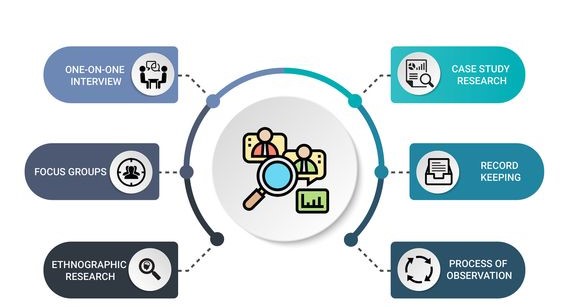
- Mixed methods research: Combines both quantitative and qualitative approaches to achieve a more comprehensive understanding of the research problem.
b. Selecting the Appropriate Design:
The choice of research design should align with your research question and objectives. Consider factors like:
- Research question: Quantitative designs are suitable for examining relationships between variables, while qualitative designs are better for exploring subjective experiences.
- Study purpose: If you aim to generalize findings to a larger population, a quantitative design is more appropriate. If you seek in-depth understanding of a specific phenomenon, a qualitative approach might be better.
- Ethical considerations: Ensuring participant confidentiality, anonymity, and informed consent is paramount in all research designs.
3. The Blueprint: Designing Your Sampling Strategy
The sampling strategy defines how you will select participants for your study. This is a crucial element of your nursing dissertation methodology, as it impacts the generalizability and representativeness of your findings.
a. Types of Sampling Methods:
- Probability sampling: Each member of the population has an equal chance of being selected, ensuring representativeness and generalizability.
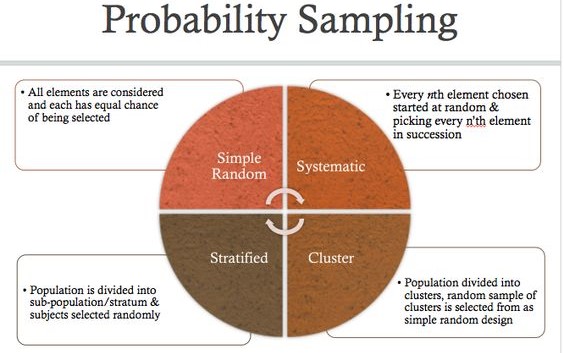
- Non-probability sampling: Participants are selected based on specific criteria, often for convenience or purposive reasons, which might limit generalizability.
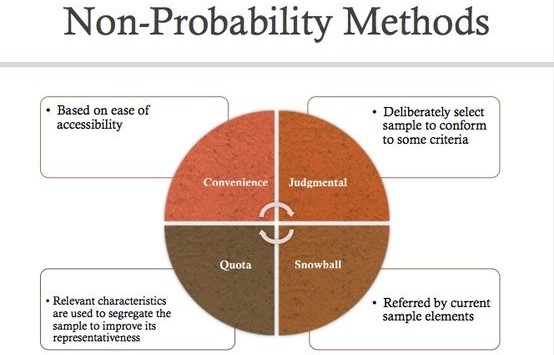
b. Selecting the Right Sampling Method:
The choice of sampling method depends on your research design and objectives.
- Quantitative studies: Often employ probability sampling techniques like simple random sampling or stratified sampling to ensure representativeness.
- Qualitative studies: Frequently use purposive sampling, snowball sampling, or convenience sampling to select participants who can provide rich, insightful data.
4. The Instruments: Choosing and Validating Data Collection Methods
Data collection methods are the tools you use to gather information relevant to your research question. The choice of methods must align with your research design and be appropriate for the type of data you seek.
a. Common Data Collection Methods:
- Surveys: Standardized questionnaires used to collect quantitative data on attitudes, behaviors, and experiences.
- Interviews: Open-ended conversations with participants, designed to gather qualitative data on their perspectives and experiences.
- Focus groups: Group discussions facilitated by a moderator, providing qualitative data on shared perspectives and experiences.
- Observations: Systematic recording of behaviors, interactions, and events, providing qualitative or quantitative data depending on the approach.
- Physiological measurements: Collecting data on physical parameters like blood pressure, heart rate, and body temperature, often used in quantitative research.
- Existing data: Utilizing pre-existing data sources like hospital records, databases, or published reports, which can be quantitative or qualitative depending on the source.
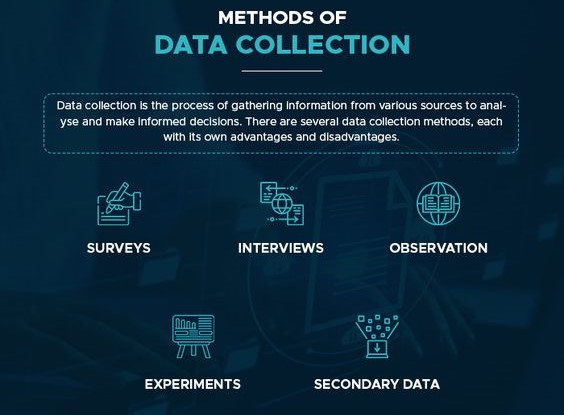
b. Validating and Refining Data Collection Methods:
- Reliability: Ensuring your data collection instruments consistently produce the same results under similar conditions.
- Validity: Ensuring your instruments accurately measure what they are intended to measure.
- Pilot testing: Conducting a preliminary trial of your data collection methods with a small sample to identify any issues and refine the instruments before full-scale data collection.
5. The Analysis: Selecting the Appropriate Data Analysis Techniques
Data analysis techniques are the methods you use to extract meaningful insights from your collected data. The choice of techniques should align with your research design, data type, and research objectives.
a. Data Analysis for Quantitative Research:
- Descriptive statistics: Summarizing data using measures like mean, median, mode, standard deviation, and frequency distributions.
- Inferential statistics: Testing hypotheses and drawing conclusions about populations based on sample data.
- Statistical software: Utilizing software like SPSS or R to perform complex statistical analyses.
b. Data Analysis for Qualitative Research:
- Thematic analysis: Identifying recurring themes and patterns within qualitative data.
- Content analysis: Analyzing the content of text-based data to identify key concepts and themes.
- Grounded theory: Developing a theory from the data collected, identifying patterns and relationships within the data.
- Narrative analysis: Focusing on stories and narratives within the data to understand experiences and perspectives.
6. The Ethics: Ensuring Ethical Research Practices
Ethical considerations are paramount in all research, particularly in nursing, where human participants are involved.
a. Ethical Principles:
- Beneficence: Ensuring research benefits participants and society.
- Non-maleficence: Avoiding harm to participants.
- Autonomy: Respecting participants’ right to informed consent and self-determination.
- Justice: Ensuring fair and equitable treatment of all participants.
b. Ethical Guidelines:
- Informed consent: Obtaining participants’ informed consent prior to participation.
- Confidentiality and anonymity: Protecting participants’ identities and the privacy of their data.
- Data security: Ensuring the security and integrity of collected data.
- Institutional review board (IRB) approval: Obtaining approval from an IRB to ensure ethical compliance.
7. The Writing: Presenting Your Nursing Dissertation Methodology
The methodology section of your nursing dissertation should be clear, concise, and detailed. It should provide readers with a comprehensive understanding of your research approach and its rationale.
a. Structure and Organization:
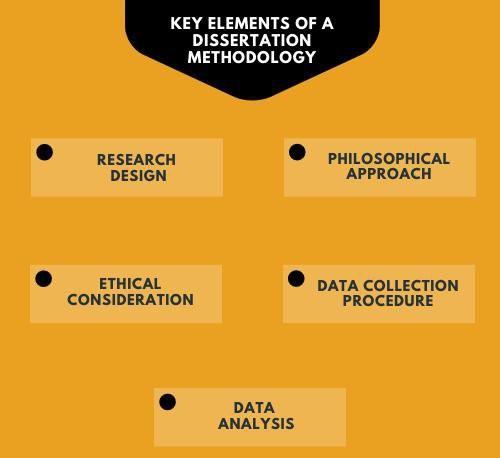
- Introduction: Provide context for your study and clearly state your research question and objectives.
- Research design: Explain the chosen research design, its suitability for your research question, and its limitations.
- Sampling strategy: Describe your sampling method, population, sample size, and the rationale for your choices.
- Data collection methods: Describe each data collection method, including instruments, procedures, and any modifications made.
- Data analysis techniques: Explain the data analysis techniques used, their appropriateness for your data type and research objectives, and the software used for analysis.
- Ethical considerations: Discuss the ethical principles guiding your research, how you obtained informed consent, and the measures taken to protect participants’ rights and data confidentiality.
b. Style and Clarity:
- Use clear and concise language: Avoid technical jargon and ambiguous terminology.
- Use consistent formatting and referencing: Follow the guidelines of your institution or journal for formatting and citations.
- Provide sufficient detail: Ensure your methodology section is comprehensive and provides enough information for readers to understand and evaluate your research approach.
Common Pitfalls to Avoid in a Nursing Dissertation Methodology
The nursing dissertation methodology is the backbone of your research. It outlines how you will answer your research question and test your hypotheses. A well-structured methodology section ensures your research is robust, credible, and ethical. However, there are several common pitfalls to avoid:
1. Lack of Clarity and Specificity:
One of the most significant pitfalls in a nursing dissertation methodology is vagueness. Your methodology should be clear, detailed, and specific. Explain your chosen research design, data collection methods, and data analysis techniques in a way that is easily understood by the reader.
2. Oversimplification of the Research Process:
The nursing dissertation methodology should not be a simple list of steps. It requires a thorough justification of your choices. Explain why you selected a particular design, how you will ensure data quality, and what challenges you anticipate. This demonstrates your critical thinking and deep understanding of the research process.
3. Insufficient Ethical Considerations:
Ethical considerations are paramount in nursing research. Your nursing dissertation methodology should address ethical issues like informed consent, confidentiality, and data security. Be specific about how you will obtain informed consent, anonymize participant data, and ensure ethical data handling throughout the research process.
4. Lack of Feasibility Assessment:
Before embarking on your research, consider the feasibility of your methods. Do you have the necessary resources, time, and expertise to execute your research plan? A realistic assessment of feasibility will help prevent delays and ensure the successful completion of your project.
5. Insufficient Justification for Sample Selection:
The chosen sample for your study is crucial to ensure the validity of your findings. Justify your sampling technique, sample size, and inclusion/exclusion criteria in your nursing dissertation methodology. Explain why this sample is appropriate for addressing your research question and achieving meaningful results.
6. Inappropriate Data Analysis Techniques:
Choosing the right data analysis techniques is crucial for drawing meaningful conclusions from your research. Ensure your chosen statistical methods are appropriate for the type of data you are collecting and the research questions you are attempting to answer.
7. Inadequate Discussion of Limitations:
All research has limitations. Acknowledging and discussing the limitations of your nursing dissertation methodology demonstrates critical thinking and transparency. By acknowledging potential weaknesses, you strengthen your research and highlight areas for future study.
By avoiding these common pitfalls and ensuring a well-structured nursing dissertation methodology, you can produce robust, credible, and ethical research that contributes meaningfully to the field of nursing.
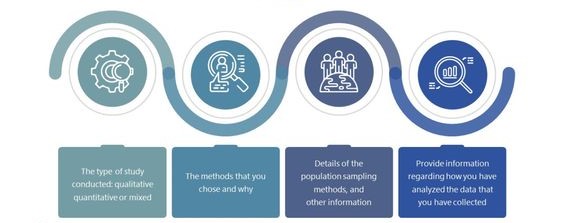
The Importance of a Stellar Dissertation Methodology
A stellar nursing dissertation methodology is not just a technical requirement; it’s the cornerstone of a successful and impactful research project.
a. Rigor and Validity:
- A well-crafted methodology ensures the rigor and validity of your research findings, enhancing the credibility of your work.
- It demonstrates your understanding of research methods and your ability to apply them appropriately.
b. Impact and Contribution:
- A robust methodology strengthens the impact of your research, enabling you to draw valid conclusions and contribute meaningful knowledge to the field of nursing.
- It lays the foundation for future research, providing a blueprint for replicating or extending your findings.
c. Professional Development:
- The process of crafting a stellar nursing dissertation methodology is an invaluable learning experience, developing your research skills and critical thinking abilities.
- It equips you with the knowledge and tools to conduct high-quality research, advancing your career as a nurse researcher.
Final Thoughts
Crafting a stellar nursing dissertation methodology is an essential step in your research journey. By following the guidelines outlined in this article, you can ensure your research is conducted ethically, rigorously, and with the highest standards of scientific inquiry. This will enable you to generate impactful findings that contribute meaningfully to the field of nursing, advancing knowledge and improving patient care. Remember, a well-crafted nursing dissertation methodology is a testament to your commitment to excellence and your potential as a future leader in nursing research.
Get Professional Nursing Dissertation Writing Help
Writing an exceptional nursing dissertation methodology section can be an overwhelming assignment. However, you do not have to go through all the stress alone. Engage our experts at Exemplary Dissertations for professional nursing dissertation writing help. We provide customized academic writing assistance for nursing research papers, case studies, essays and dissertations.

